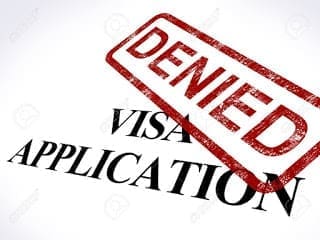HOW TO AVOID VISA CANCELLATION IN AUSTRALIA
49,618 visas were cancelled in 2013-2014 (“Australia’s Migration Trends 2013-2014”, Department of Immigration and Border Protection, at page 71-72)
Did You Know?
In 2013-2014, Australia granted 190,000 visas in total. At the same time, almost 50,000 visas were cancelled. That’s more than 1 in 4 visas granted was cancelled! For a non-citizen, will you unknowingly and unluckily become 1 of the 4?
Under what circumstances can Australia take away (and cancel) your visa?
Power to Cancel
The Migration Act (Cth) 1958 stipulates circumstances where the Minister can cancel visa:
- Section 134: A Business Visa can be cancelled where the visa holder has not obtained a substantial ownership interest in an eligible business in Australia or has not utilizing his or her skills in actively participating at a senior level in the day-to-day management of that business.
- Section 109: A visa obtained based on incorrect information or false document can be cancelled. Whether or not you were aware or had knowledge that the information supplied was incorrect is irrelevant
- Section 116: Cancellation for failure to comply with conditions and other grounds. For instance, cancellation of Employer Sponsored visas and student visas.
- Section 501: A visa can be cancelled where the visa holder fails the good character test.
Warning: In many circumstances, your family member as secondary visa holder will also lose his or her visa if your visa is cancelled.
Tip 1: Know Your Obligations
It is very likely that there are strict conditions attached to your visa. It is your obligation to comply with these conditions. Do you know what your obligations are?
These conditions are generally stipulated in the notice of grant when you first obtained the visa. Study them carefully and make sure you do not (inadvertently or unknowingly) breach any of the conditions. “I didn’t know” is not a valid excuse!
If you are unsure of your obligations, do seek professional advice immediately.
Tip 2: Give Correct Information
Do not attempt to mislead the Department of Immigration. Failure to give full disclose of relevant information can be construed as misleading.
There is only one way to avoid giving incorrect or false information – ensure that you make only statement of facts that are within your knowledge.
If you are uncertain about how to respond or answer a particular question from the Immigration, seek help from a registered migration agent or a professional immigration lawyer. Do not simply guess! Giving a wrong answer can be very fatal.
Tip 3: Don’t Wait
If you receive any notice or enquiry from the Department of Immigration or authority relating to your visa, you need to act immediately. There is strict time limit for you to exercise or protect you rights. You may be entitled to appeal to Administrative Appeal Tribunal (AAT), for merits review or the Federal Court for judicial review, but you must do it within the time limit. Do not wait, you should get professional advice immediately!
Tip 4: Participation and Ownership (Specifically for Business Visa Holders)
Many business visa cancellations were found on the grounds that the visa holder did not have substantial ownership in an eligible business and failed to actively particulate at a senior level in the day-to-day management of the business.
Firstly, pay attention when establishing your structure. Structure of your legal vehicle will determine whether you have the correct “ownership” to meet the Migration Act requirement.
Secondly, make sure the venture you intend to carry on is a “business” within the legal definition and also an “eligible business” within the meaning of the Migration Act.
Thirdly, the Migration Act requires you to actively participate at a senior level in the day-to-day management of your business. Practically, it can be a problem if you are not physically in Australia most of the time. You will need to be able to illustrate how you have actively participated in the day-to-day management. This is one of the most common grounds for cancelling a business visa.
ABOUT THE WRITER
Kelvin Tang has over 14 years’ experience practising law in Western Australia. He is the founder and Principal Partner of Tang Law based in Perth, Western Australia. Kelvin is a Registered Migration Agent (MARN: 1386452) and has extensive experience in providing migration advice to clients, advising on “Eligible Businesses” within the definition of the Migration Regulations, assisting migrants (investor of the business) with satisfying migration requirements, making visa applications and appealing cancelled or refused visas in the Federal Court of Australia, Administrative Appeals Tribunal and Migration Review Tribunal. Kelvin also has extensive experience in civil litigation, commercial and corporate law matters.



